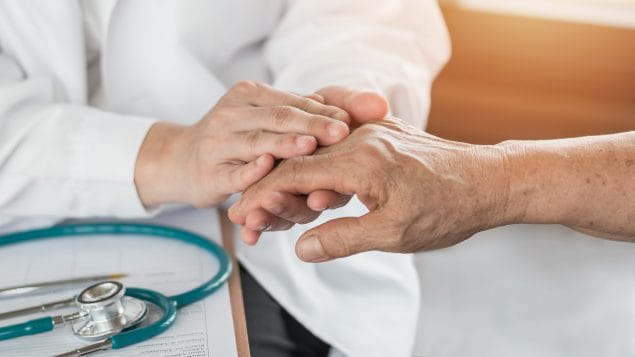Recovery from a Moderate or Severe TBI
Also, see:
A person with a moderate or severe TBI may need specialized medical care, such as rehabilitation, after their injury. This may include getting help with re-learning skills (such as driving and remembering things) and getting back to work.
A healthcare provider can help find and connect people to services in their community. A healthcare provider may also:1
- Screen for and treat problems, such as depression.
- Encourage lifestyles that promote brain health.
- Educate patients and their families to prevent or reduce problems that may show up after the injury, like chronic pain and headaches, loss of smell or taste, and problems with sleep and vision.

Rehabilitation seeks to improve the lives of people living with TBI
The goal of TBI rehabilitation is to improve the overall quality of life for persons living with a TBI and lower the chance for a TBI-related disability. Rehabilitation programs and services may help those living with TBI by improving their ability to:
- Do daily tasks independently,
- Engage with friends and family, and
- Participate in community activities2
Getting help can improve recovery
Some of the health problems that result from a moderate or severe TBI may be prevented or lessened. Getting help is crucial for improving the lives of persons living with a TBI and lowering the chance for lifelong health problems.2,3
How well a person recovers from a moderate or severe TBI depends on multiple factors, such as:
- The health of the person before the injury,
- Type and severity of the TBI,
- Access to healthcare and specialized TBI care, and
- Family and other social support.1
Stay connected to others during recovery
There are many organizations who can help you and your family as you recover. You do not have to do it alone. Keep talking with your healthcare provider, family members, caregivers, and loved ones about how you are feeling. If you do not think you are getting better, tell your healthcare provider.
See Where to Get Help webpage for more information on organizations that can provide support for persons living with a TBI and their families.
- Centers for Disease Control and Prevention, National Institutes of Health. Moderate to Severe Traumatic Brain Injury is a Lifelong Condition. Available at: https://www.cdc.gov/traumaticbraininjury/pdf/Moderate_to_Severe_TBI_Lifelong-a.pdf.
- Centers for Disease Control and Prevention, National Center for Injury Prevention and Control. Report to Congress on traumatic brain injury in the United States: Epidemiology and rehabilitation. Atlanta (GA): Centers for Disease Control and Prevention; 2015.
- Masel BE, DeWitt D. Traumatic brain injury: a disease process, not an event. J Neurotrauma. 2010;27(8):1529-1540.
